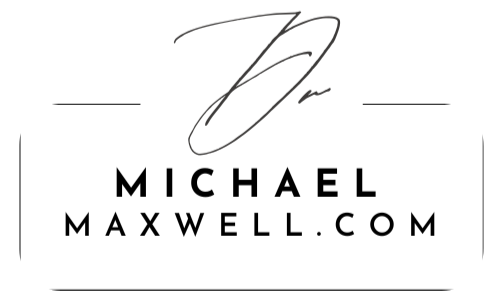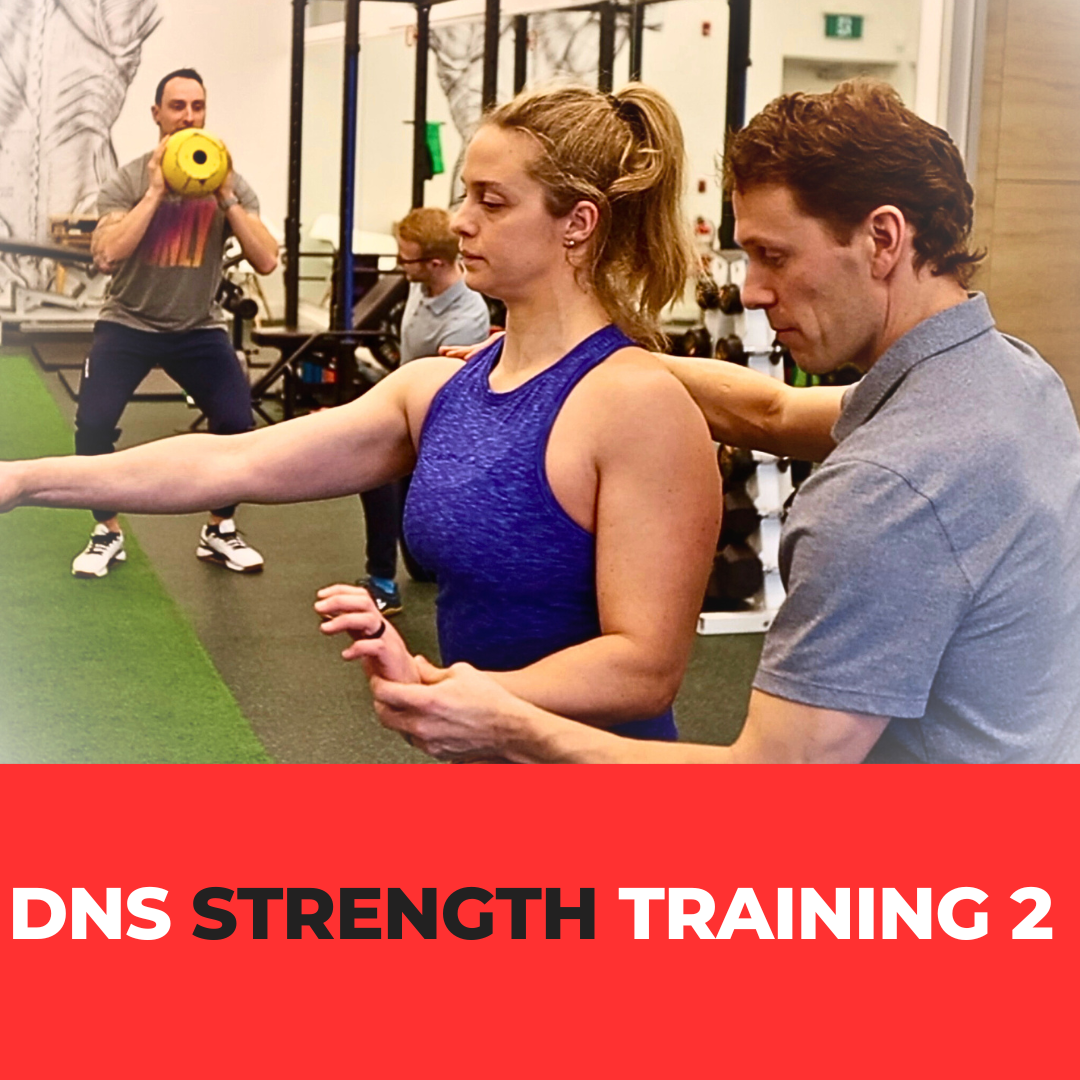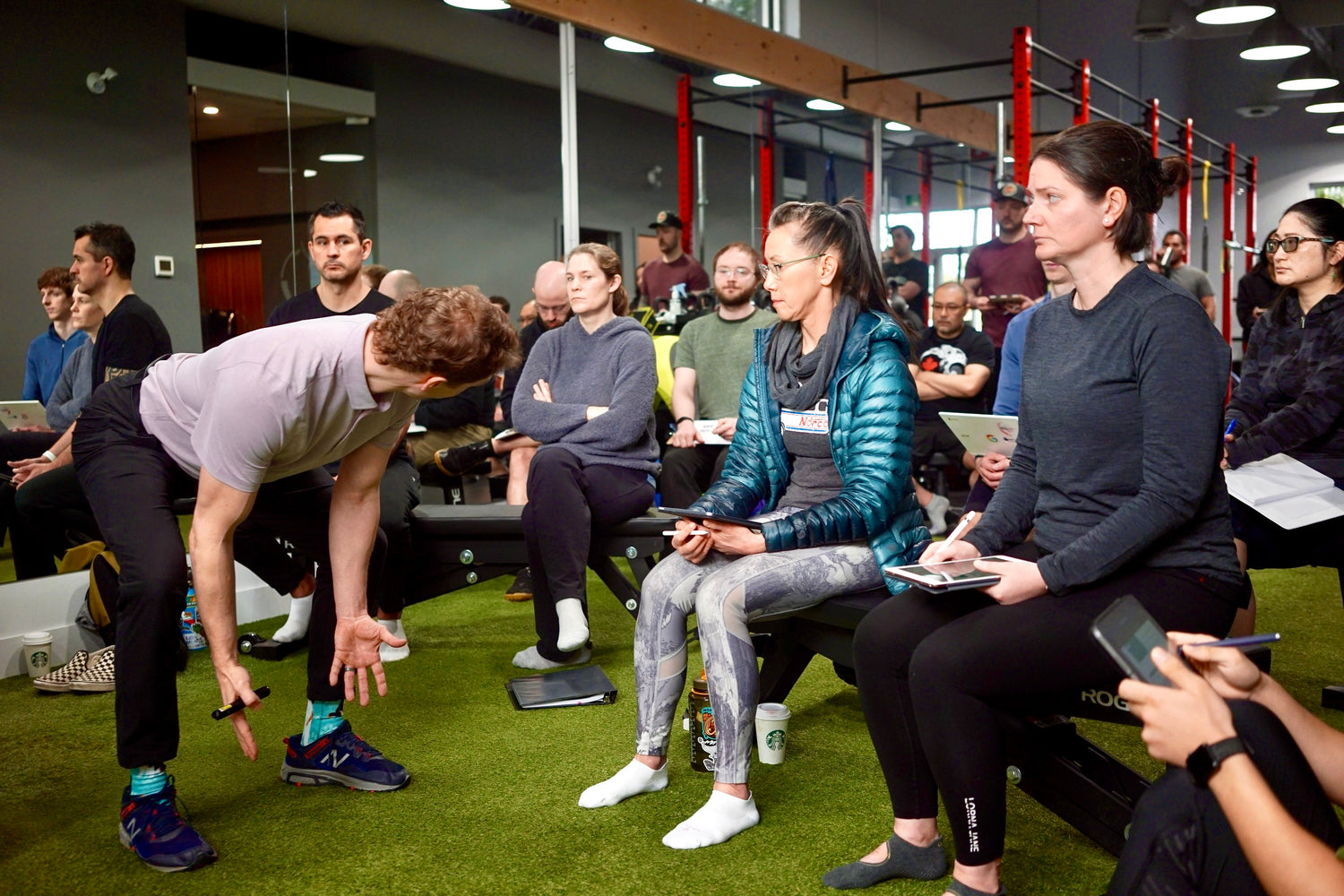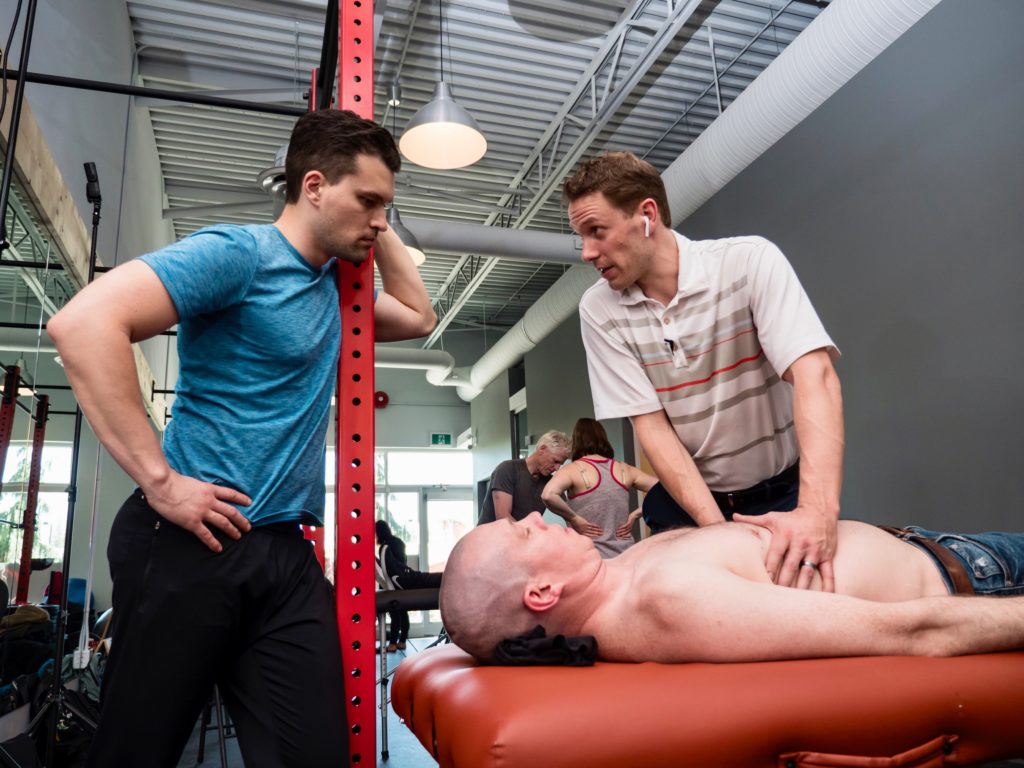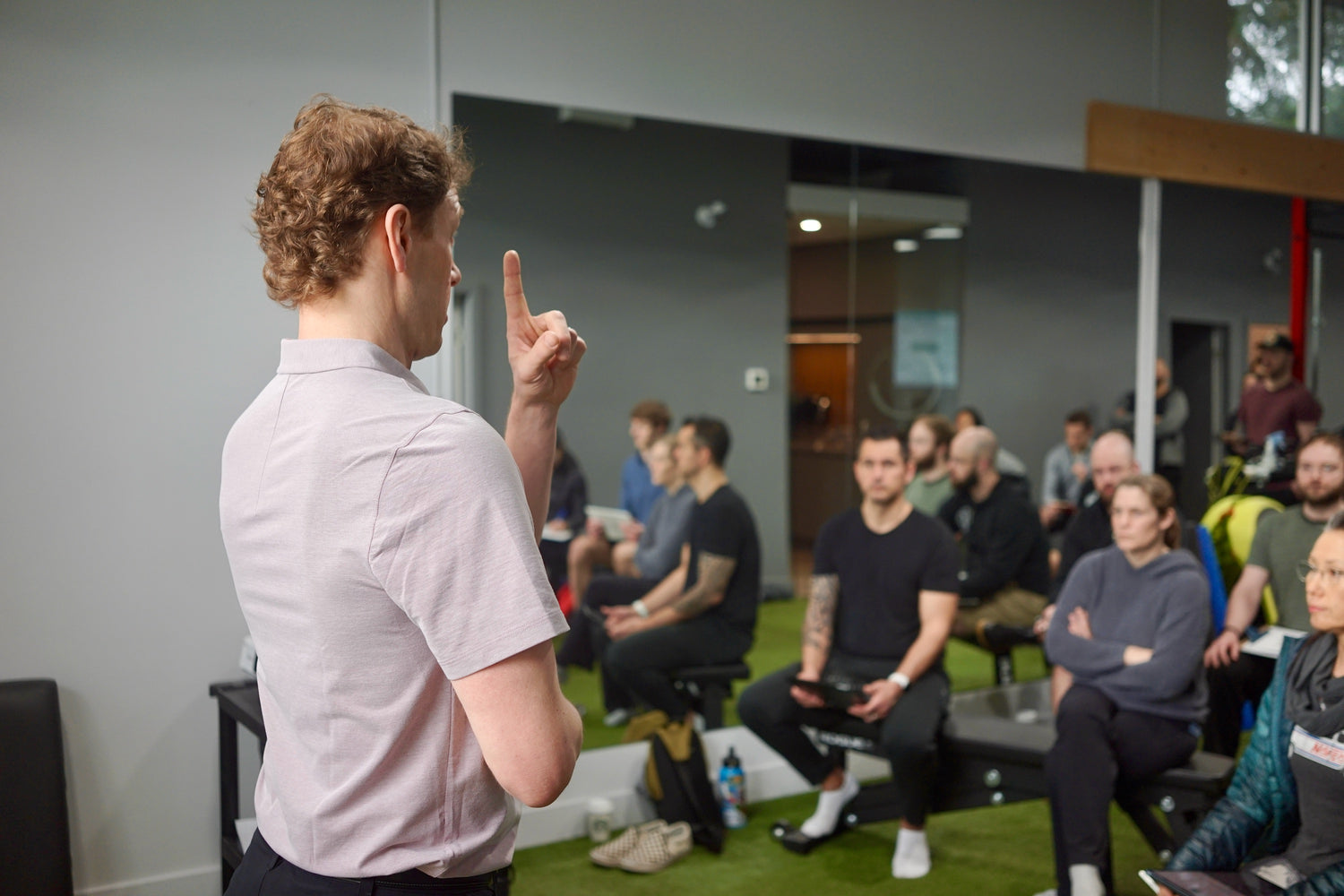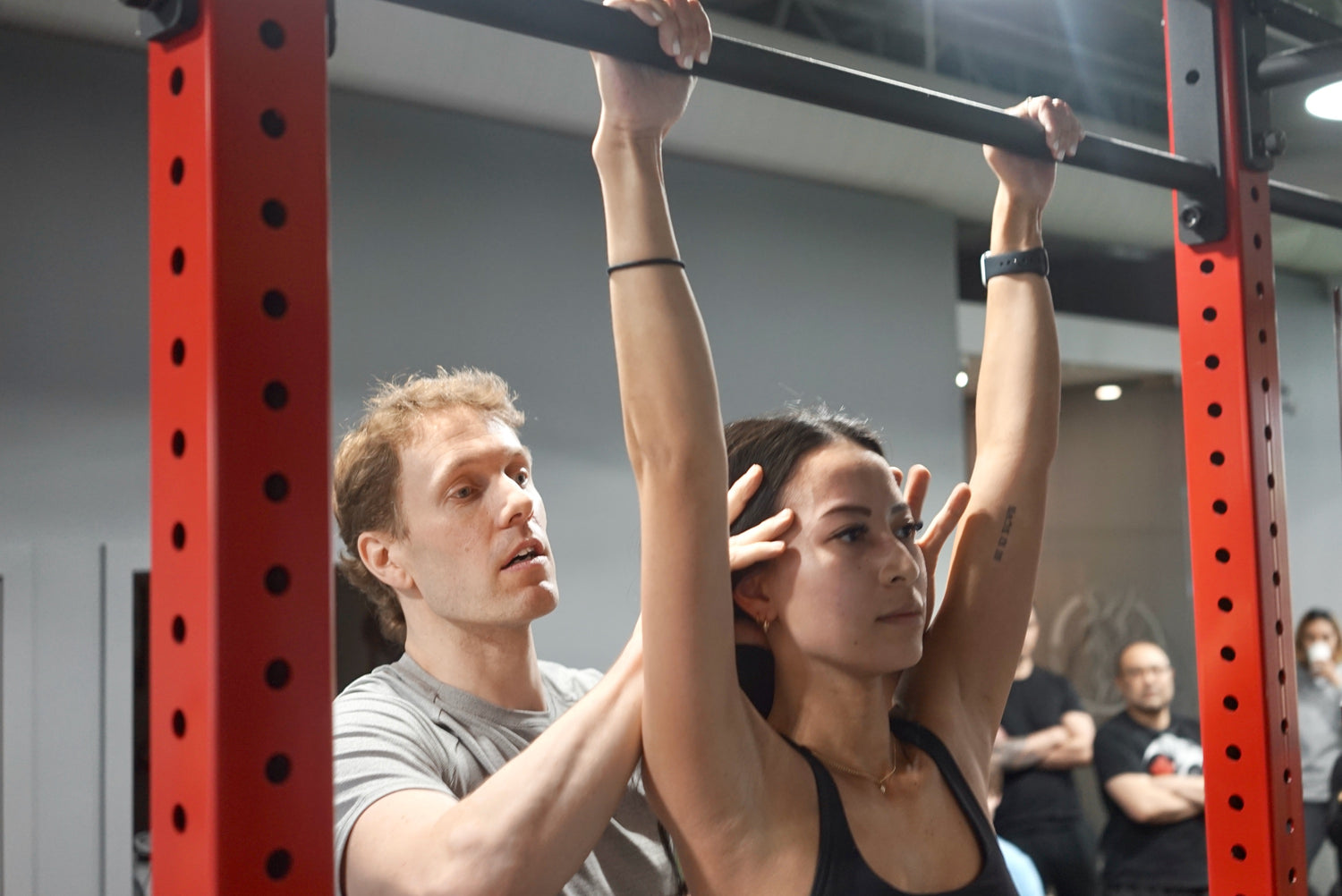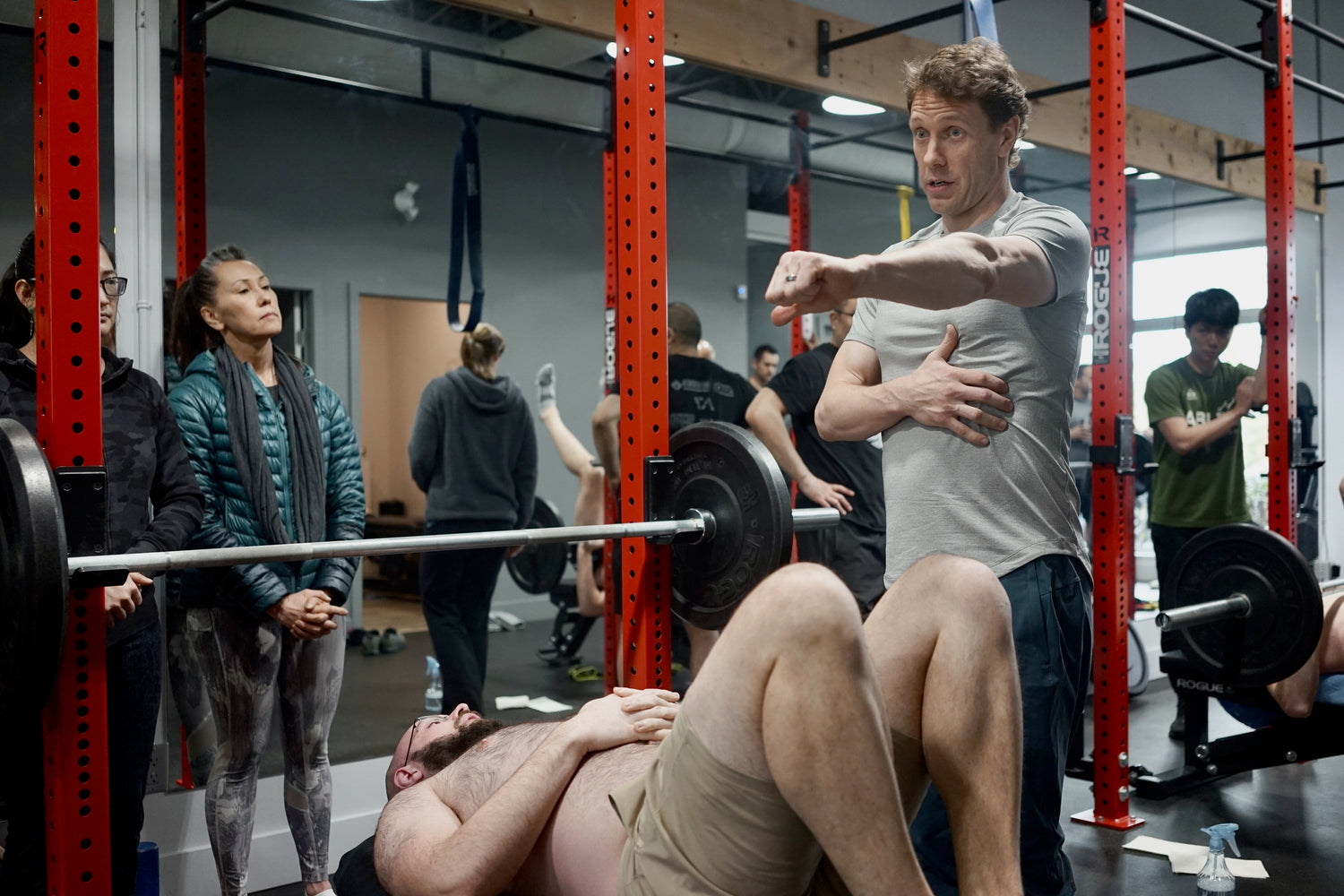Description
DNS is a comprehensive explanation of movement and function. Its principles, exercises, and assessments are highly effective in the clinical setting.
DNS, however, has powerful application in the sports/performance and strength training professions. The DNS strength training track is designed to help coaches, athletes, and medial professionals effectively apply DNS to the strength training profession. These courses are for anyone who uses strength training in their profession, be it a coach, an athlete, or a rehab professional.
The DNS Strength Training track is broken up into 3 primary courses, including: DNS-ST1, DNS-ST2, and DNS-ST3, that expose attendees to DNS principles (functional joint centration, sagittal stability, developmental kinesiology, etc.), assessments, and exercises based on developmental kinesiology, which are then applied to traditional strength training.
Whether you are a coach wanting to gain a better understanding of movement or a clinician who integrates strength training into the rehabilitation process, these courses are designed for you.
Course Highlights
DNS Strength Training courses are 3-day, 24 hour courses, featuring a strong practical components, with a 65:35 practical-theory ratio.
DNS is a revolutionary perspective on evaluating and rehabilitating postural function that will greatly enhance any clinical rehabilitation or strength and conditioning program.
DNS-ST2 builds on the concepts covered in DNS ST1. We dig deeper into the fundamental DNS concepts introduced in DNS ST1 (Functional Joint Centration, Stabilization, The roll of the Diaphragm in Respiration and Stabilization). We break out of the sagittal plane to cover coronal and transverse plane movements. We also break away from symmetrically loaded, unilateral movements and cover asymmetrically loaded and unilateral movements such as lunging, single arm dumb bell rows, single arm kettlebell pressing.
What You Will Learn
Objectives:
- Provide a detailed explanation of Functional Joint Centration.
- Teach attendees about the origin and function of the oblique muscle chains.
- Teach attendees about proper foot loading: anatomy involved & its impact on stabilization and centration.
- Teach attendees about diaphragm function in sports: the diaphragm paradox.
- Workshop DNS exercises based in developmental kinesiology from newborn to 18 Months, with an emphasis on positions older than 6 months (Oblique Sit, Tripod, Bear).
- Introduce rules for applying DNS principles to programming.
Goals:
- Improve attendees’ understanding of stabilization.
- Improve attendees’ understanding of proper foot loading.
- Teach attendees how to program utilizing DNS principles.
DNS Assessments Covered:
- Seated Hip Flexion Test
- Differentiated Bear Assessment
- 1/2 Kneeling Assessment
- 1/2 Kneeling to Stand Assessment
- Tripod Assessment
Strength Training Movements Covered:
- Hinging: Kettlebell Swing, Single Arm Kettlebell Swing, Differentiated RDL, Single Arm RDL
- Squatting: Oblique Squat, Reverse Lunge
- Pressing: Single Arm DB/Cable Press, Single Arm Kettlebell Press, Single Arm Bench
- Pulling: Single Arm Horizontal Row (symmetrical & staggered stance), Single Arm DB Row Variations
Course Outline
Day 1
Hour 1 - 2 Lecture: review concepts covered in DNS ST1 (ontogenesis, sagittal stabilization etc...). The Function & Origin of the Oblique Slings
Hour 3 - 4 Workshop: review 3 months model, Quadruped Assessment, Exercises in 3M position
Hour 5 Lecture: Proper Foot Loading for Strength Training
Hour 6 Workshop: Developmental Flow
Hour 7 - 8 Workshop: review hinging from DNS ST1, progress to unilateral loaded hinging (Single Arm Swings, Single Arm RDLs) and staggered stance hinging.
Day 2
Hour 9 - 10 Lecture: Detailed lecture on Functional Joint Centration
Hour 11 - 12 Workshop: Seated Hip Flexion Test, Differentiated Bear Assessment
Hour 13 Lecture: The Diaphragm Paradox
Hour 14 Demonstration: Bilateral vs. Unilateral loading (bent row and single arm press)
Hour 15 - 16 Workshop: Unilateral Pressing & Pulling
Day 3
Hour 17 Lecture: Programming Guidelines for Applying DNS to Strength Training
Hour 18 Workshop: Developmental Flow Sequence
Hour 19 - 20 Workshop: DNS Tests (1/2 Kneeling Assessment, 1/2 Kneeling to Stand Assessment, Tripod)
Hour 21 Demonstration: Reverse Lunge
Hour 22 Reverse Lunge
Hour 23 - 24 Workshop: Accessory exercises (Czech Get-Up + Variations, DNS Transitions, etc...)
Course Instructor
Michael Maxwell, DC, BHK
Michael's mission is to provide MSK education that is backed by research, rooted in reason, and highly applicable,
Michael is a Certified Instructor for Dynamic Neuromuscular Stabilization according to Pavel Kolar, and is Canada's only Certified Instructor for Michael Shacklock's Clinical Neurodynamics. Michael has presented at post graduate continuing education courses and conferences throughout North America and Internationally.
Michael started his career as a Personal Trainer in 1998, and followed by acquiring certifications and experience as a Medical Exercise Specialist, Certified Strength and Conditioning Specialist, and Kinesiologist. Since 2007 he has practiced as a Chiropractor with an emphasis on integrating movement-based manual therapy and exercise interventions.
Michael has pursued education and excellence with a passion since his early days as a Personal Trainer. In 2003, Dr. Maxwell has organized well over 300 continuing education courses throughout Canada featuring industry leaders such as Lorimer Moseley, Donald Murphy, Jack Miller with Mulligan, Jeremy Lewis, Stuart McGill, Pavel Kolar, and the outstanding Prague School Physio’s, Clayton Skaggs, Brett Winchester, Michael Shacklock, Dale Buchberger, Clare Frank, Robert Lardner, Mark Finch, Charlie Weingroff, and many more!
Through his consistent and exceptional exposure to some of the world's most recognized clinicians and educators, 20 years in the trenches helping clients and patients reach their goals, and his dedication to providing exceptional and comprehensive care in clinical practice, Dr. Maxwell is well-positioned to provide outstanding clinical continuing education.
DNS Strength Training Certification
To become a Certified DNS Strength Coach (DNS-SC), one must attend each of the core DNS Strength Training courses (DNS-ST1, DNS-ST2, & DNS ST-3). After the DNS-ST2 course attendees must pass a test. The test following DNS-ST2 is an on-line, multiple choice test that can be completed at home. This test is open book. Attendees will have 1 year after the course to pass the examination. The student gets a maximum of three attempts to pass the test. Students are recommended to retake the course and then to take the online test again in case of failing to pass the test on the three attempts. As soon as submitting the test the student receives results by email. Passing the online test is a prerequisite before taking the final practical test, and being certified as a DNS Strength Coach. The final test will be a practical test performed at the end of DNS-ST3. This test will involve the individual performing DNS exercises, tests, and applying them to traditional strength training movements. They will need to demonstrate competence in DNS and be able to accurately identify movement dysfunction and properly prescribe corrective exercises. To take this exam, attendees must have started taking DNS courses at least 1 year before and they must have passed both written tests. Any official DNS course will start the mandatory 1 year clock before one is eligible to take the certification examination.
To ensure that potential Certified DNS Strength Coaches are ready for the practical examination, we advise that they take 5 courses before they test (e.g. Exercise 1, DNS Movement Flow, or a 1 day movement skills course on the squat). This is not a requirement, but a strong suggestion.
Certified DNS Strength Coaches will go on the DNS webpage and can use the letters DNS-SC after their name. To maintain the certification, one will have to attend a DNS course every 3 years. These courses do not have to be in the strength training track.
